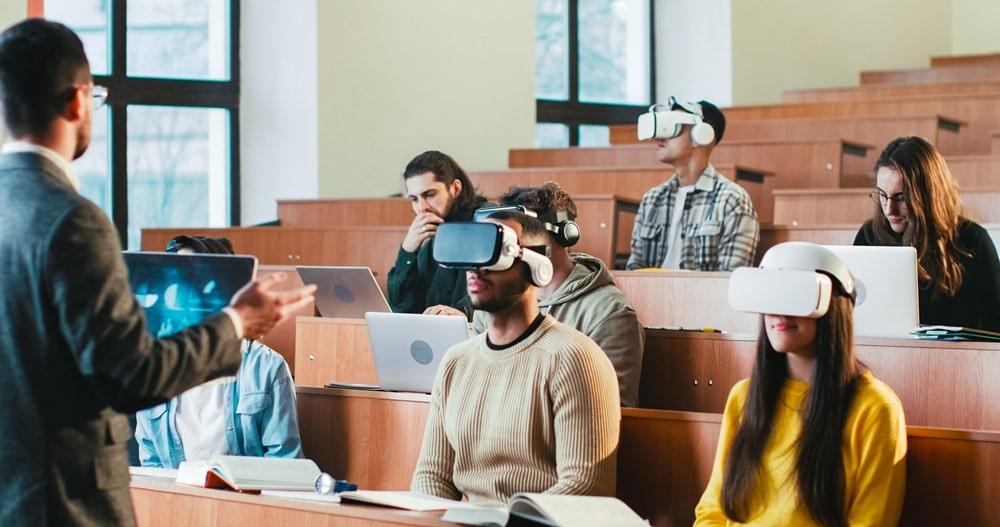Affordable VR Solutions for schools: Best Cost-Effective Options for Classroom Learning
Virtual Reality (VR) is revolutionizing education, making lessons more immersive, engaging, and effective. But concerns about costs can make some schools hesitant to adopt this cutting-edge technology. the good news? Affordable VR solutions for schools are more accessible than ever. In this guide, we explore the best cost-effective VR options suited for classrooms, break down their benefits, and share practical tips for educators looking to bring virtual reality into their teaching toolkit.
Why Choose VR for Classroom Learning?
Before diving into specific devices and solutions, let’s discuss why virtual reality in education is such a game-changer. Integrating VR in the classroom delivers numerous benefits, including:
- Active Engagement: Students can “travel” to the past, explore the human body, or visit faraway planets from the classroom.
- Differentiated Learning: VR helps accommodate diverse learning styles by offering both visual and kinesthetic experiences.
- Improved Retention: Immersive lessons enhance focus and information retention.
- safe Simulations: Students can safely conduct science experiments or practice skills in a simulated habitat.
Top Affordable VR Solutions for Schools
When it comes to cost-effective VR solutions for schools, you don’t need to break the bank. Below are some budget-friendly VR devices and kits educators should consider, each balancing affordability, functionality, and classroom suitability.
1. Google Cardboard
- Price Range: As low as $5 per headset
- Requirements: Compatible smartphone, Google Expeditions (now merged with Google Arts & Culture)
- Pros: Extremely budget-friendly, wide range of VR content, easy to set up
- Cons: Limited interactivity, dependent on smartphone quality
Best For: Introducing VR in schools with very limited budgets or as a trial VR solution.
2. Oculus Quest 2 (Now Meta Quest 2)
- Price Range: $299 – $399
- Requirements: Standalone (no PC/phone needed),robust app library,wireless
- Pros: immersive experience,powerful hardware,easy to manage in group settings
- Cons: Initial investment higher than Cardboard,but low total cost of ownership
Best For: Schools seeking a high-quality,scalable VR experience without the need for external devices.
3. ClassVR
- Price Range: Starting at $430 per headset including educational content & management portal
- requirements: Standalone headset, online management, compatible with most school wifi networks
- Pros: Built for education, easy group management, lesson plans included
- Cons: Higher upfront cost balanced by tailored education focus
Best For: Schools prioritizing educational content and classroom control features.
4. Merge VR Headset
- Price Range: About $49.99 per headset
- requirements: Smartphone-based, access to Merge EDU for K-8
- Pros: Durable foam design, affordable, rich educational resources
- Cons: Dependent on smartphones, less advanced than high-end standalone VR
Best For: Young students (elementary/middle school) and schools needing tough hardware.
5. Veative Edu VR Kits
- Price Range: Starting around $250 per kit
- requirements: Standalone or smartphone options, extensive K-12 STEM content
- Pros: Designed for schools, tracking and assessment tools, scalable
- Cons: May have international shipping fees
Best For: STEM educators looking for curriculum-aligned VR modules.
Practical Tips for Implementing Cost-Effective VR in Schools
- Start Small: Pilot with a few headsets and lessons before scaling school-wide.
- Leverage Free Content: Platforms like Google Arts & Culture, National Geographic VR, and YouTube offer rich VR resources for free.
- Device management: Choose solutions with classroom management tools to monitor and guide student activities.
- Sanitization Protocols: Especially post-pandemic, use VR headset covers and sanitizing cloths to maintain hygiene.
- Student Accessibility: Use accessible interfaces or assign a student “tech helper” to assist classmates.
- Community Grants: Check with local education boards or technology companies for VR funding opportunities.
Real-World Success: Case Studies from Classrooms
Many schools globally have adopted affordable VR for classrooms with remarkable results. Hear are a few inspiring examples:
Case Study: Pine Ridge Elementary, Nebraska
Using Merge VR headsets and Google Cardboard, Pine Ridge’s teachers reported a 38% betterment in science test engagement after a semester of regular VR use. One teacher shared, “VR field trips made every student excited to participate, even those who rarely raised their hand.”
Case Study: Saint Mary’s School District, Texas
Adopting Oculus Quest 2 for a mix of history and biology lessons, teachers noted more lively peer discussions and higher attendance, especially during immersive “walking with dinosaurs” lessons.
Key Benefits of Affordable VR for Schools
By investing in cost-effective VR classroom solutions, schools can unlock benefits such as:
- Improved student motivation and attention
- Greater exposure to STEAM (Science, Technology, Engineering, Arts, math) content
- Enhanced collaboration through shared virtual spaces
- Personalized learning journeys for special education students
- Reduced costs compared to physical field trips or lab materials
Conclusion: making VR Accessible for Every Classroom
With a growing range of affordable VR solutions, schools can now harness the power of virtual reality without the high price tag once associated with this technology.Whether starting small with Google Cardboard or investing in robust options like the Meta Quest 2,there are cost-effective VR options for every classroom and budget.By planning carefully and leveraging free resources, you can ensure your students benefit from engaging, modern, and impactful classroom experiences.
Ready to bring the virtual world into your teaching? start with one of these affordable VR solutions for schools and open your students’ eyes to endless learning possibilities.

